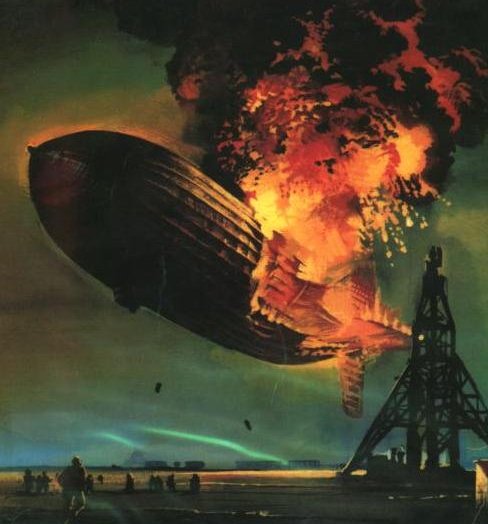 Rainy and warm this early Thursday on California’s north coast, another segment on winter 2014.
Rainy and warm this early Thursday on California’s north coast, another segment on winter 2014.
And the word, ‘warm,’ is a major factor here — at 4 in the freakin’ morning, it’s near 55 degrees, which is about the temperature of mid-day around these parts.
Meanwhile, way to the east, the US Atlantic seaboard is currently in the clutches of anti-warm — freezing temperatures, a foot-or-more of snow and no power:
“It’s really, really bad, and it got so bad so quickly that people just weren’t ready. Even though we were warned, it just happened more quickly than you would think possible.”
(Illustration found here).
The quote above is from a lady in Durham, North Carolina, describing the white-blasted chaos of the storm. The citation could also be used in describing the dynamics behind the weather — climate change. It’s getting ‘really, really bad,’ and although we’ve been warned, the shit is happenin’ too-freakin’ fast.
Last night, I watched Jon Stewart interview Elizabeth Kolbert on The Daily Show (actually, Tuesday night, but a day’s delay via Hulu). Kolbert is a New Yorker magazine environmental writer and author of the new book, ‘The Sixth Extinction: An Unnatural History‘ — there’s been five terminations, and we’re (humans) are included in this last one, the sixth.
A depressing talk as Stewart couldn’t really find anything real funny about the end of life on earth.
You can see the interview here.
One depressing aspect of this whole climate disaster is the warnings. Despite the horror foretold, who gives a shit?
From Rolling Stone earlier this month:
But there’s a flip side to this American success story.
Even as our nation is pivoting toward a more sustainable energy future, America’s oil and coal corporations are racing to position the country as the planet’s dirty-energy dealer – supplying the developing world with cut-rate, high-polluting, climate-damaging fuels.
Much like tobacco companies did in the 1990s – when new taxes, regulations and rising consumer awareness undercut domestic demand – Big Carbon is turning to lucrative new markets in booming Asian economies where regulations are looser.
Worse, the White House has quietly championed this dirty-energy trade.
“The Obama administration wants to be seen as a climate leader, but there is no source of fossil fuel that it is prepared to leave in the ground,” says Lorne Stockman, research director for Oil Change International.
“Coal, gas, refinery products – crude oil is the last frontier on this. You want it? We’re going to export it.”
…
Even more troubling, the administration opened up more than 300 million tons of coal in the Powder River Basin to bidding by the coal companies last year.
The coal is on government land; it belongs to the public.
Yet the leasing practices of the Bureau of Land Management (BLM) are so flawed that one independent study estimates that taxpayers have been fleeced of $30 billion over the past three decades.
In the past, that stealth subsidy to Big Coal at least helped create cheap power for American homes and businesses.
Today, the administration has put American taxpayers in the position of subsidizing coal destined to fuel the growth of our nation’s fiercest, and carbon-filthiest, economic rival.
In the battle to prevent the United States from fueling the developing world’s global-warming binge, the deck is stacked against climate hawks.
The fossil-fuel industry remains the single most powerful special interest in Washington, having successfully ball-gagged the entire Republican Party on global warming.
More insidiously, the macroeconomic indicators by which the economy – and any presidency – are measured can be cheaply inflated through dirty-energy exports, which boost GDP and narrow the trade deficit.
All that bullshit in the face of most-likely the greatest threat humanity has either come-up against, and can wipe out all of us.
One Kolbert quote, taken from her 2006 book, ‘Field Notes from a Catastrophe: Man, Nature, and Climate Change,’ underlines/bold-types our situation: “It may seem impossible to imagine that a technologically advanced society could choose, in essence, to destroy itself, but that is what we are now in the process of doing.”
Sorry.